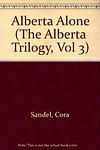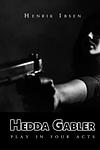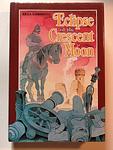The Greatest Hungarian, Norwegian, Mexican Books of All Time
Click to learn how this list is calculated.
This list represents a comprehensive and trusted collection of the greatest books. Developed through a specialized algorithm, it brings together 305 'best of' book lists to form a definitive guide to the world's most acclaimed books. For those interested in how these books are chosen, additional details can be found on the rankings page.
Genres
Countries
Date Range
Reading Statistics
Click the button below to see how many of these books you've read!
Download
If you're interested in downloading this list as a CSV file for use in a spreadsheet application, you can easily do so by clicking the button below. Please note that to ensure a manageable file size and faster download, the CSV will include details for only the first 500 books.
Download-
1. Pedro Páramo by Juan Rulfo
This novel transports readers to the ghost town of Comala, where the protagonist, Juan Preciado, ventures in search of his estranged father, Pedro Páramo. Upon arrival, he encounters a realm where the living and the dead coexist, and through fragmented narratives and spectral encounters, the story of Pedro Páramo's life, his love, tyranny, and the curses that plague the town unfolds. The novel's innovative structure, blending memory and reality, has cemented its status as a pioneering work of magical realism, offering a haunting exploration of power, guilt, and the inescapable echoes of the past.
The 298th Greatest Book of All Time -
2. Hunger by Knut Hamsun
This novel is a psychological journey through the mind of a starving young writer in 19th century Norway. Driven by pride and stubbornness, he refuses to accept help and instead chooses to endure severe hunger and the mental and physical deterioration it causes. His struggle is not only with his physical condition but also with his own mind as he battles hallucinations, mood swings, and an increasingly distorted perception of reality. The book is a profound exploration of poverty, mental illness, and the human will to survive.
The 302nd Greatest Book of All Time -
3. A Doll's House by Henrik Ibsen
This classic play focuses on the life of Nora Helmer, a woman living in a seemingly perfect marriage with her husband, Torvald. However, as the story unfolds, it becomes clear that Nora has been hiding a significant secret related to their finances. The revelation of this secret, and the subsequent fallout, challenges societal norms and expectations of the time, particularly in regards to gender roles and the institution of marriage. Nora's eventual decision to leave her husband and children in pursuit of her own independence serves as a powerful commentary on individual freedom and self-discovery.
The 324th Greatest Book of All Time -
4. Kristin Lavransdatter by Sigrid Undset
Set in 14th century Norway, "Kristin Lavransdatter" follows the life of its titular character from her childhood, through her tumultuous and passionate marriage to Erlend Nikulausson, to her life as a mother and eventual widow. The narrative explores Kristin's struggles with faith, societal expectations, and personal desires, offering a vivid portrayal of medieval Scandinavian life along the way. Despite the many hardships she faces, Kristin remains a strong and resilient woman, embodying the spirit of her time.
The 394th Greatest Book of All Time -
5. Growth of the Soil by Knut Hamsun
"Growth of the Soil" is a novel that follows the life of a man who leaves his nomadic lifestyle to become a pioneer farmer in the Norwegian wilderness. The narrative traces his journey from solitude to building a family and a thriving farm, showcasing his deep connection with the land and the cyclical nature of life. The book also explores the tension between traditional rural life and modernity, as external forces such as industrialization and societal change begin to impact the protagonist's simple existence.
The 653rd Greatest Book of All Time -
6. Fateless by Imre Kertész
"Fateless" is a harrowing account of a Hungarian Jewish boy's experiences in Nazi concentration camps during World War II. The protagonist is sent to Auschwitz, then Buchenwald, and finally to a factory in Zeitz, enduring brutal conditions and witnessing unimaginable horrors. Despite his experiences, he maintains a detached, almost indifferent perspective, focusing on the mundane aspects of life in the camps, which further highlights the absurdity and horror of the situation. The novel explores themes of identity, survival, and the arbitrary nature of fate.
The 686th Greatest Book of All Time -
7. Embers by Sandor Marai
"Embers" is a novel about two old friends who reunite after being apart for 41 years. The story takes place in a secluded castle in the Carpathian Mountains, where the two men confront each other about a long-kept secret that has kept them apart. The narrative delves into themes of friendship, love, loyalty, and betrayal, while exploring the intricate dynamics of human relationships. The novel is a poignant examination of the nature of time and memory, and the ways in which they can shape and define our lives.
The 722nd Greatest Book of All Time -
8. Like Water For Chocolate by Laura Esquivel
This novel is a romantic, magical realism tale set in turn-of-the-century Mexico. It chronicles the life of Tita, the youngest daughter in a traditional Mexican family, who is forbidden to marry due to a family custom that mandates the youngest daughter must care for her mother until death. Tita falls in love with Pedro, who in turn marries her elder sister to stay close to her. The story is uniquely structured around the twelve months of the year, each beginning with a traditional Mexican recipe. The protagonist's emotions become infused with her cooking, leading to strange effects on those who consume her culinary creations.
The 792nd Greatest Book of All Time -
9. The Death of Artemio Cruz by Carlos Fuentes
The novel revolves around the life of a self-centered Mexican media mogul, Artemio Cruz, who is on his deathbed. As he reflects on his past, the narrative shifts between first, second, and third person perspectives, exploring different stages of Cruz's life from his impoverished childhood, his participation in the Mexican Revolution, his ruthless pursuit of power, and his eventual downfall. The book is a critique of the corruption and moral decay in Mexican society following the Revolution.
The 845th Greatest Book of All Time -
10. Sophie's World: A Novel About the History of Philosophy by Jostein Gaarder
"Sophie's World" is a unique and intriguing novel that intertwines the narrative of a young girl named Sophie with a comprehensive history of Western philosophy. Sophie begins receiving mysterious letters from an unknown philosopher and gradually becomes engrossed in the world of philosophy. The book uses Sophie's journey to explore philosophical concepts and theories, from ancient to modern times, in an accessible and engaging way, making it an excellent introduction to the subject for readers of all ages.
The 905th Greatest Book of All Time -
11. The Burning Plain and Other Stories by Juan Rulfo
"The Burning Plain and Other Stories" is a collection of short narratives set in the harsh rural areas of Mexico, depicting the brutal realities of peasant life. The stories are filled with characters who are haunted by their past, living in extreme poverty, and often meeting violent ends. The book is renowned for its stark, realistic portrayal of life and its exploration of the human capacity for hope and survival in the face of despair.
The 973rd Greatest Book of All Time -
12. The Underdogs by Mariano Azuela
"The Underdogs" is a novel set during the Mexican Revolution, depicting the conflict from the perspective of the peasants who fought in it. The story follows the journey of a poor, illiterate Indian named Demetrio Macias, who becomes a reluctant leader in the rebellion against the federal government. The narrative explores the brutality and chaos of war, the corruption of power, and the often futile nature of rebellion, painting a grim picture of the human cost of revolution.
The 1035th Greatest Book of All Time -
13. House with the Blind Glass Windows by Herbjørg Wassmo
"House with the Blind Glass Windows" is a poignant tale of a young girl growing up in Norway during the 1950s. The narrative explores her struggles with family secrets, abuse, and the oppressive nature of her small, rural community. The protagonist's journey towards understanding and overcoming her traumatic past forms the crux of the story, which is set against the backdrop of post-war Europe.
The 1094th Greatest Book of All Time -
14. Pan by Knut Hamsun
The novel is a lyrical exploration of the beauty and savagery of nature, set in the wild landscapes of Northern Norway. It follows the story of a solitary hunter and former military man who lives in harmony with the wilderness. His peaceful existence is disrupted when he falls in love with a young woman, leading to a tumultuous relationship that reflects the untamed and unpredictable forces of the natural world around them. The narrative delves into themes of passion, isolation, and the human longing for connection, all while painting a vivid portrait of the changing seasons and the primal allure of the forest.
The 1121st Greatest Book of All Time -
15. The Labyrinth of Solitude by Octavio Paz
This book is a profound and vivid exploration of Mexico's character, culture, and identity. The author delves into Mexico's history, politics, and psyche, examining the country's deep solitude and its impact on the national character. The book provides a comprehensive analysis of Mexican society, its myths, symbols, and rituals, offering a deep understanding of the Mexican people's unique way of perceiving the world. It also discusses the influence of the United States on Mexico and the complex relationship between the two countries.
The 1128th Greatest Book of All Time -
16. The Notebook: The Proof ; The Third Lie : Three Novels by Agota Kristof
"The Notebook: The Proof ; The Third Lie : Three Novels" is a trilogy of novels that follow the lives of twin brothers, living through the harsh realities of war, separation, and betrayal. The first novel, "The Notebook," tells the story of their survival as children in a rural town at the end of World War II. The second book, "The Proof," continues their story into adulthood, exploring the effects of their traumatic childhood. The final book, "The Third Lie," delves into the complexities of their relationship and the secrets they kept from one another. The trilogy is a poignant exploration of identity, love, and the enduring bond of brotherhood.
The 1298th Greatest Book of All Time -
17. The Alberta Trilogy by Cora Sandel
"The Alberta Trilogy" is a series of three novels that follow the life of Alberta Selmer, a young woman growing up in a small Norwegian town in the early 20th century. The trilogy explores Alberta's struggle with societal expectations, her pursuit of independence and her journey to becoming a painter. Set against the backdrop of a harsh Norwegian landscape, the series highlights the protagonist's struggle with poverty, her relationships, and her exploration of her identity and place in the world.
The 1344th Greatest Book of All Time -
18. Journey by Moonlight by Antal Szerb
"Journey by Moonlight" tells the story of a newlywed Hungarian couple, Mihály and Erzsi, who honeymoon in Italy. Mihály, however, is haunted by his past and becomes increasingly obsessed with his adolescent years, his old friends, and a mysterious brother and sister. This results in him abandoning Erzsi in order to embark on a strange and dark journey of self-discovery. The novel explores themes of nostalgia, love, and the struggle between personal desires and societal expectations.
The 1350th Greatest Book of All Time -
19. Hedda Gabler by Henrik Ibsen
"Hedda Gabler" is a dramatic play that centers on the life of its titular character, a woman trapped in a loveless marriage with a dull, reliable husband. She is bored with her life and longs for freedom and excitement. Her desire for control and power leads her to manipulate those around her, resulting in tragic consequences. The play explores themes of societal expectations, personal freedom, and the destructive power of boredom.
The 1494th Greatest Book of All Time -
20. Eclipse of the Crescent Moon by Géza Gárdonyi
"Eclipse of the Crescent Moon" is a historical novel set in the 16th century, during the time of the Ottoman Empire's siege on the Hungarian fortress of Eger. The story follows a brave young boy named Gergely, who grows up to be a heroic soldier defending his homeland. The tale is filled with romance, adventure, and provides a detailed depiction of medieval life, warfare, and the heroic resistance of the Hungarian people against the invading Ottoman forces.
The 1554th Greatest Book of All Time -
21. Cartucho And My Mother's Hands by Nellie Campobello
"Cartucho And My Mother's Hands" is a poignant collection of vignettes that offer a child's perspective on the Mexican Revolution. Through a series of short, vivid sketches, the narrative captures the brutality and humanity of the conflict as witnessed by the young protagonist. The work is both a personal memoir and a tribute to the resilience of women, particularly the author's mother, whose strength and tenderness are symbolized by her hands. The book blends the innocence of childhood with the harsh realities of war, providing a unique and emotionally resonant account of historical events that shaped Mexico's national identity.
The 1626th Greatest Book of All Time -
22. Fool's Gold by Máro Doýka
"Fool's Gold" is a compelling story about a man who, after a series of unfortunate events, finds himself in a small town in the mountains, where he discovers an abandoned gold mine. As he delves deeper into the mine, he uncovers not only gold but also the town's dark secrets and hidden past. As he navigates through the mine, he also navigates through his past, learning about himself and what truly matters in life. The book is a captivating exploration of human nature, greed, and the lengths people will go to for wealth.
The 1675th Greatest Book of All Time -
23. Édes Anna by Dezső Kosztolányi
"Édes Anna" is a novel that revolves around the life of a young servant girl, Anna, who works for a bourgeois family in early 20th century Hungary. The narrative explores Anna's experiences of exploitation, abuse, and societal oppression. As she navigates her way through life, her innocence and naivety are gradually eroded, leading her to commit an act of violent rebellion. The book is a potent critique of class and gender inequalities of the time.
The 1918th Greatest Book of All Time -
24. Giants in the Earth by Ole Edvart Rolvaag
"Giants in the Earth" is a historical novel that chronicles the story of a Norwegian pioneer family's struggles with the land and the elements of the Dakota Territory as they try to make a new life in America. It is a profound and accurate depiction of the trials, tribulations, successes, and failures of pioneer life, emphasizing the harsh realities of adapting to a new environment. The novel explores themes of man versus nature, cultural displacement, and the pursuit of the American Dream.
The 2010th Greatest Book of All Time -
25. Peer Gynt by Henrik Ibsen
The play follows the adventures of its eponymous hero, a boastful and irresponsible Norwegian peasant who embarks on a series of fantastical and often selfish escapades. Throughout his life's journey, he encounters various mythical creatures, engages in business ventures, and pursues romantic interests, all while evading responsibility and the consequences of his actions. His quest for self-realization and identity takes him around the world, only to lead him back home to confront the reality of his wasted life and the love he scorned. The play is a poetic and satirical critique of the Romantic hero and delves into themes of existentialism, self-deception, and the nature of true self-fulfillment.
The 2080th Greatest Book of All Time
Reading Statistics
Click the button below to see how many of these books you've read!
Download
If you're interested in downloading this list as a CSV file for use in a spreadsheet application, you can easily do so by clicking the button below. Please note that to ensure a manageable file size and faster download, the CSV will include details for only the first 500 books.
Download






















